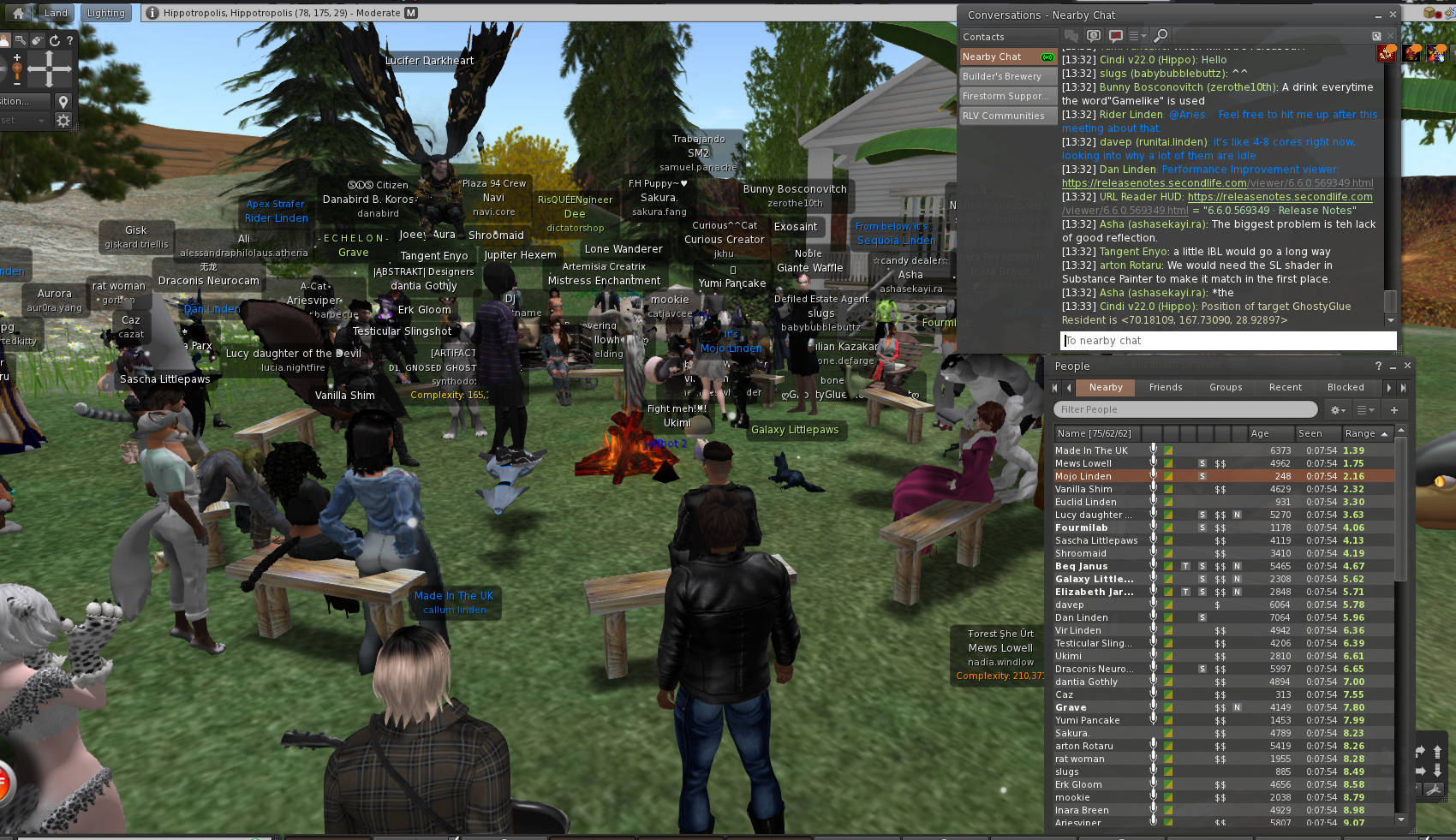JoeJ said:
The question is: Do we even want to disconnect from reality, and exchange it against a virtual one? What is the promise of a metaverse, beside play to earn or sell your twitter avatar pic for millions? Why should anyone seriously try to work on a metaverse at all? What is the great experience we can expect from it? That's my question. Maybe one of you devs experienced on the subject can answer it.
“Do we even want to disconnect from reality, and exchange it against a virtual one?”
Humans do it all the time. We do it for play. We do it for work. We do it for communications with friends and family and even strangers. We will continue to do it. Where you physically are, and your own physical limitations, they don't especially matter in the virtual world.
“What is the promise of a metaverse, beside play to earn or sell your twitter avatar pic for millions?”
As discussed all through the topic so far, we'll do it mostly for play and interaction. Want to be a superhero with your friends? Want to manipulate the world in fantastic ways? Want to have a virtual mansion and visit with your friends? Want to visit the virtual beach for a party, the virtual dungeon alone or with a raiding party, the virtual cloud city for racing around the sky, the virtual town hall for a gathering? You're there in an instant regardless of where you are in the physical world.
But it isn't just play. Want to look at the microscopic world? Want to jump inside a patient's body to get a close-up view of the illness? Want to tour the inside of a running nuclear power plant? There are endless possibility. And you don't have to do it alone. You can do it with as many people as you want. Get a second opinion on your condition, have a teacher show students the details.
Even better, you can also mix the serious with the play. As I described, we've had team meetings in dinosaur filled rooms, in a virtual mall with nerf guns, in a virtual bowling alley. It can be quite memorable.
“Why should anyone seriously try to work on a metaverse at all?”
As above. More immersive play. Better ways to work. Better communication. It's a job you can get paid for. Take your pick.
“What is the great experience we can expect from it?”
For VR, the end game would be akin to a Star Trek Holodeck.
On the fun side that can be whatever fantasy world you want you can create, whether that's a room full of your favorite scantily-clad supermodels who engage in your every whim, or being the star of your own Marvel universe with super powers or mystical ability, or spending time relaxing on a beach alone while you're just lying on your couch or bed. If it can be imagined, in can be experienced.
On the serious side that can be whatever productive use you can imagine, with my mind going to first medical uses and surgery as the biggest benefits to humanity. The doctor could virtually jump into your body, maybe even a point-and-click interface to kill individual cells like cancer, or to monitor how the body is inflamed, bruised internally, bleeding, or whatever else the doctor needs to see. But again, whatever can be imagined.
For AR, the end game is the addition of all information as a HUD.
On the fun side, that can mean games like Pokemon Go, or like the movie Free Guy, where the game elements are just there in the world, clearly as an augmented item but also ever-present. Shopping you could explore exactly how you look in an outfit, and so on.
On the serious side, that can mean things like musicians getting their music score hovering in front of you, names and important information showing up whenever you need it. People who do blood draws will have augmented vision of exactly where to put the needle to draw the blood, or warnings to a doctor that the patient has an unusual nerve right there so cut somewhere else.




